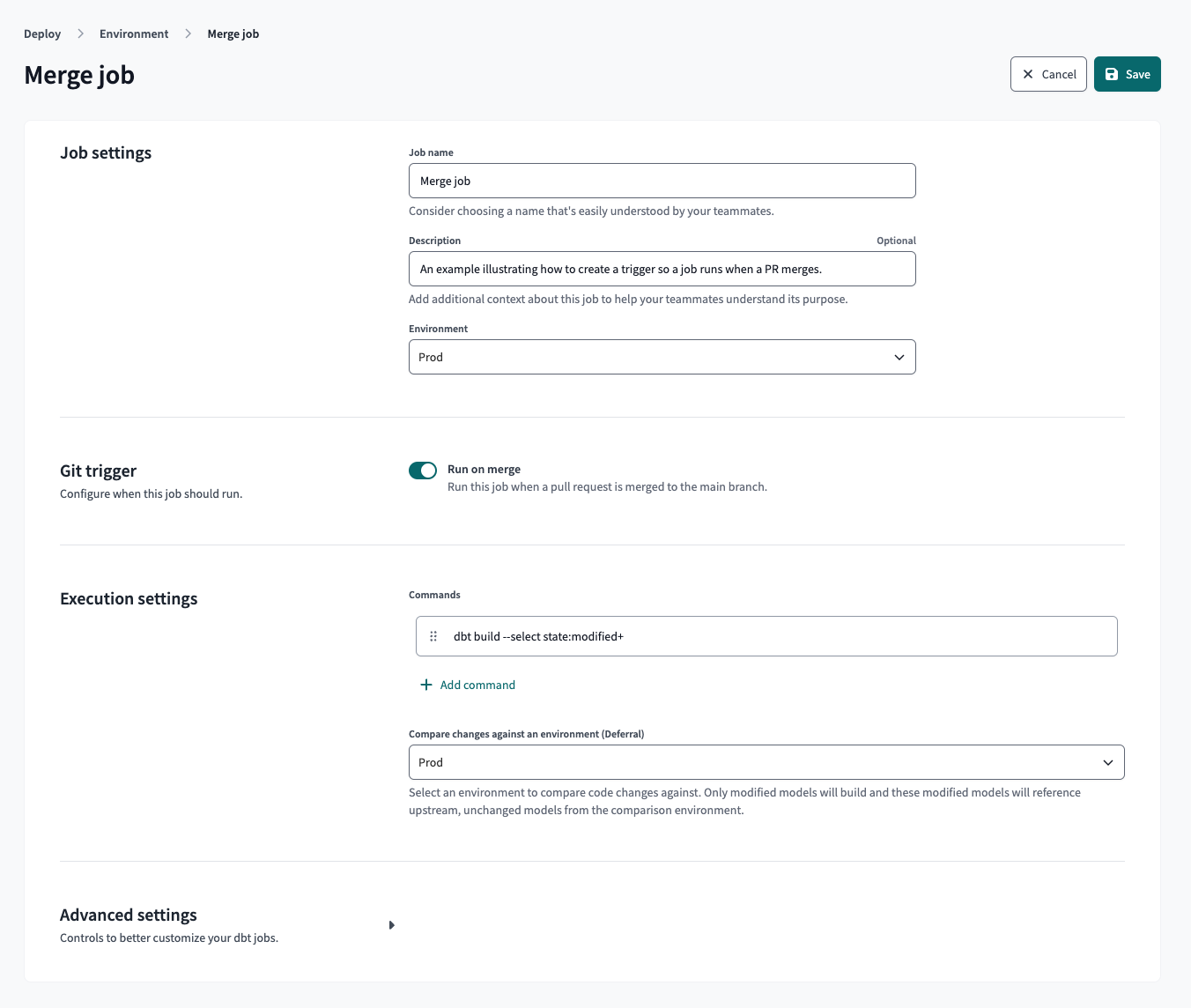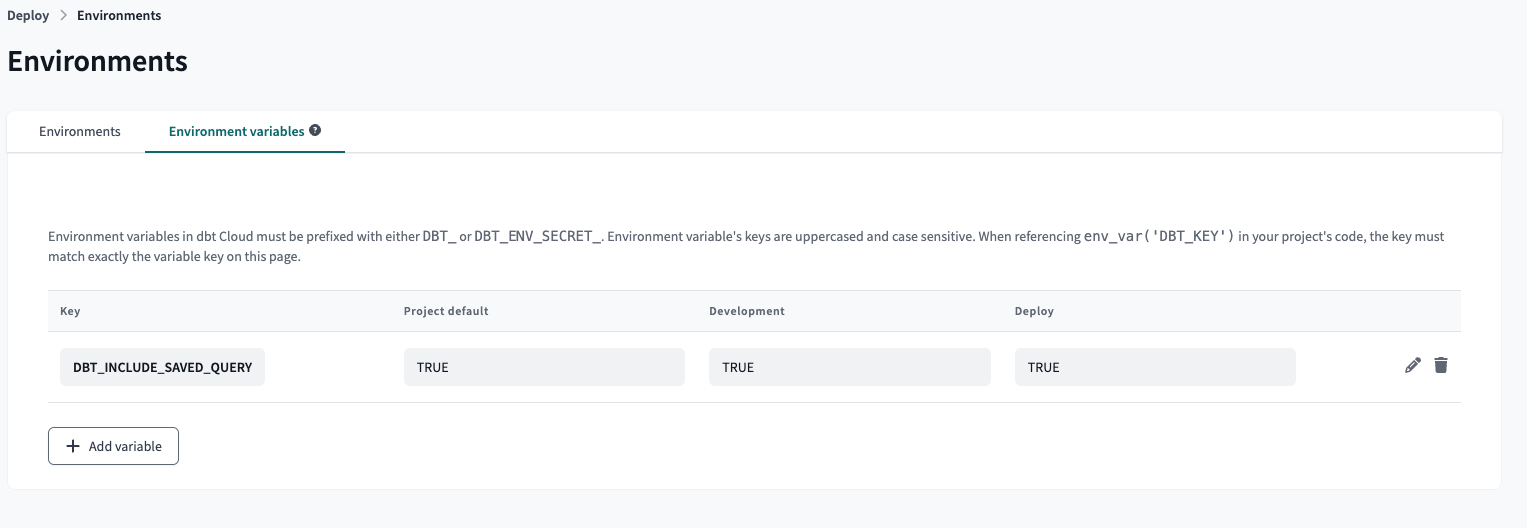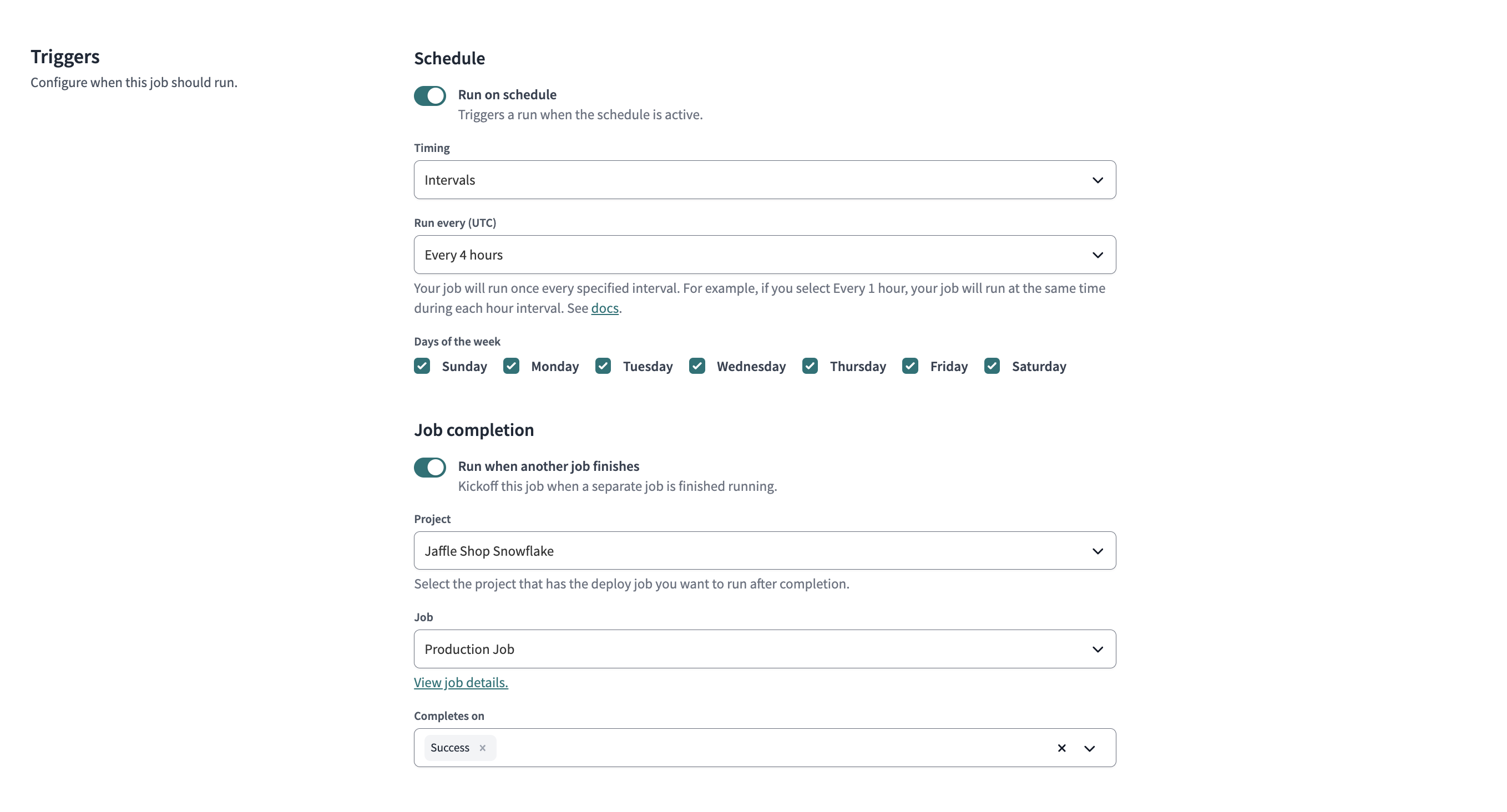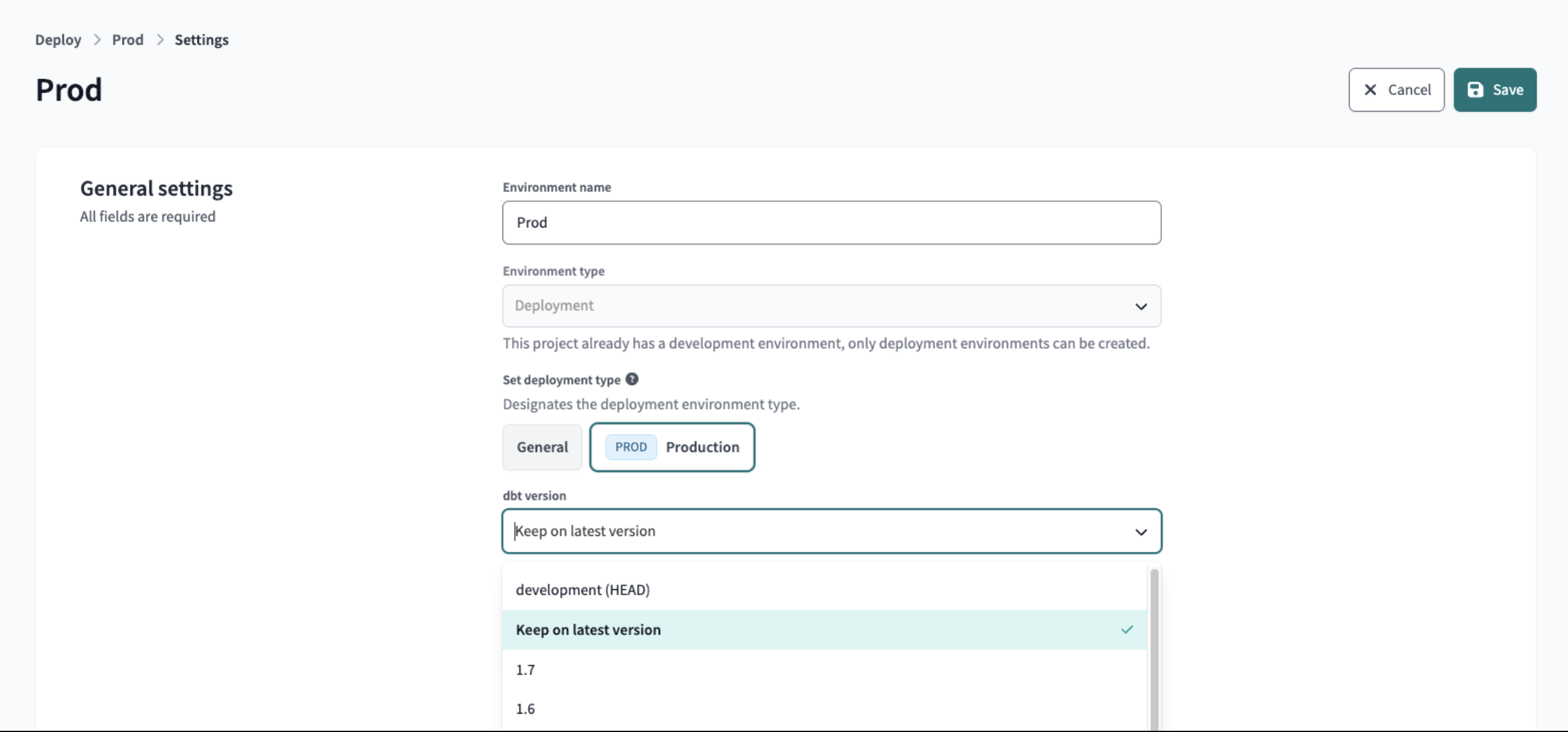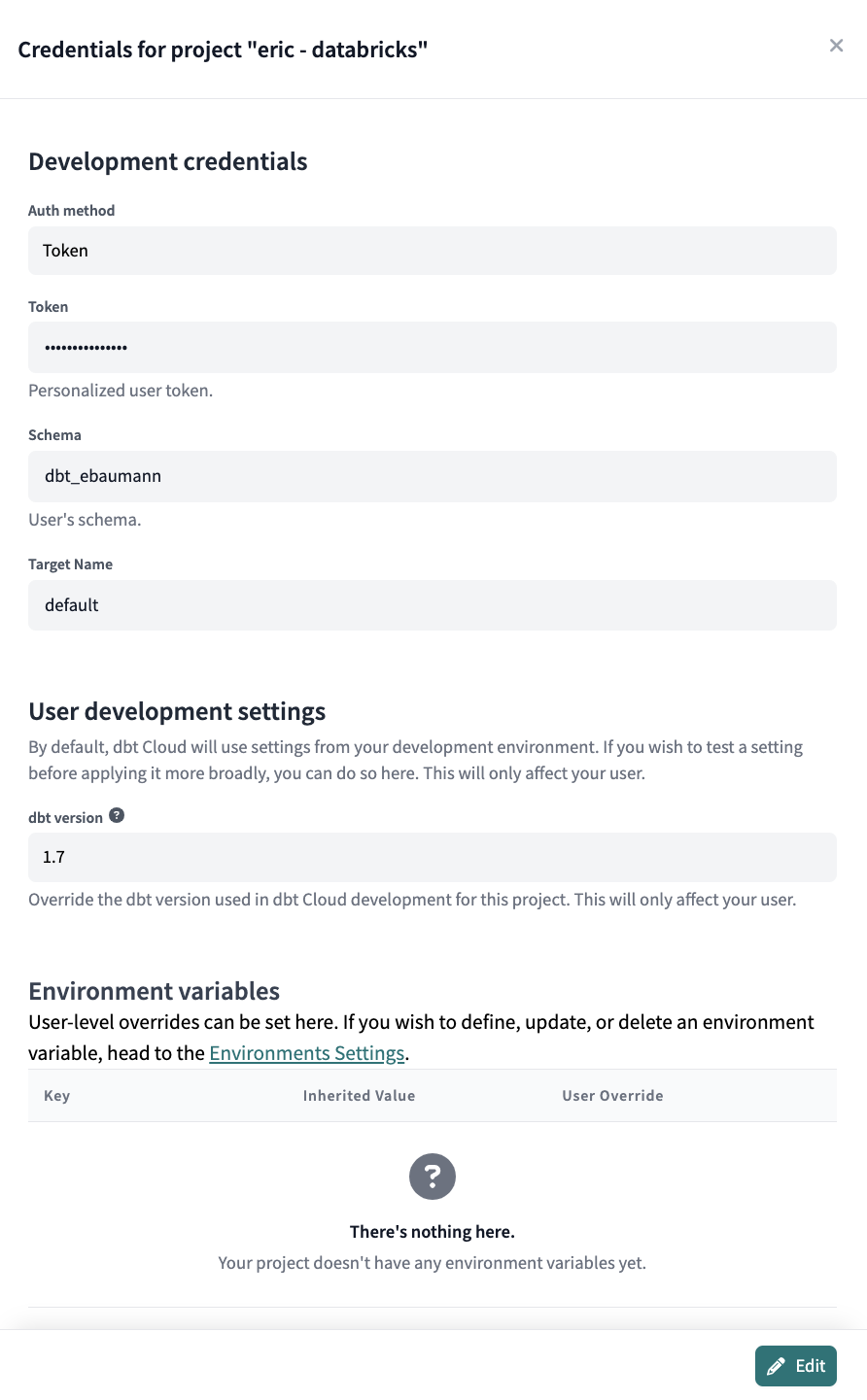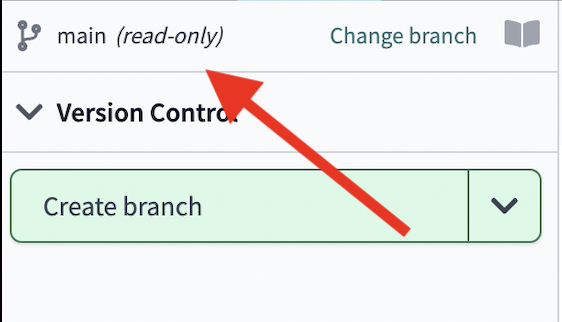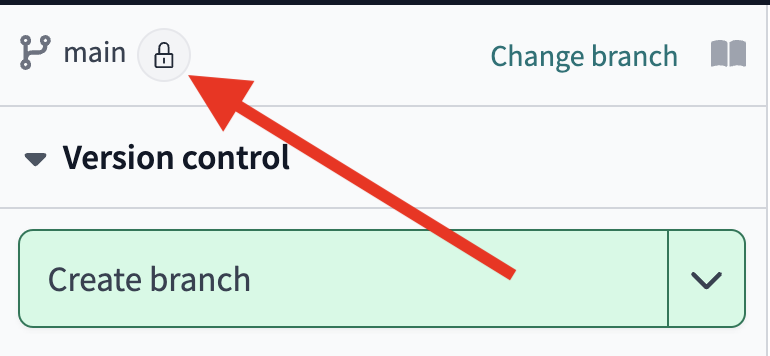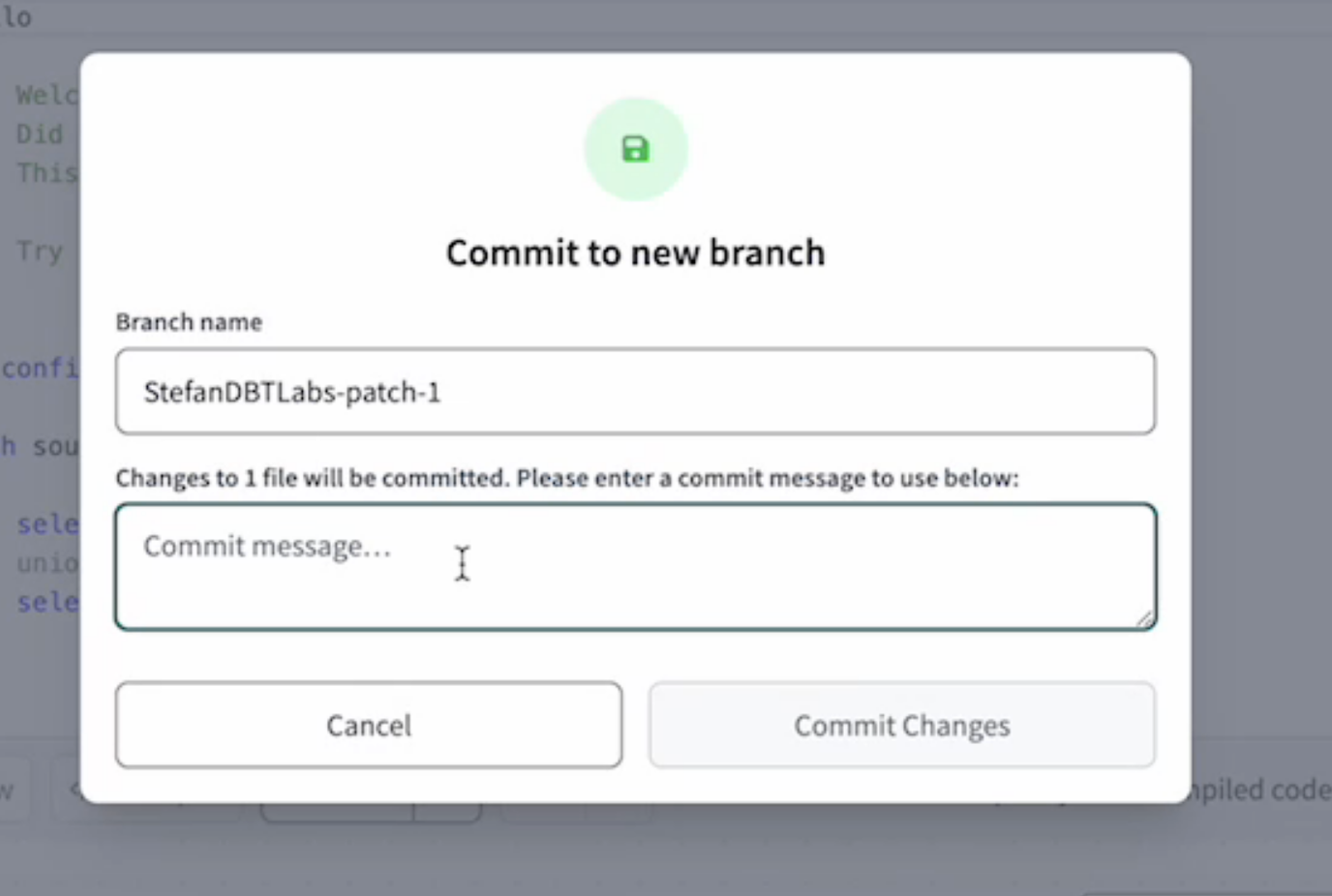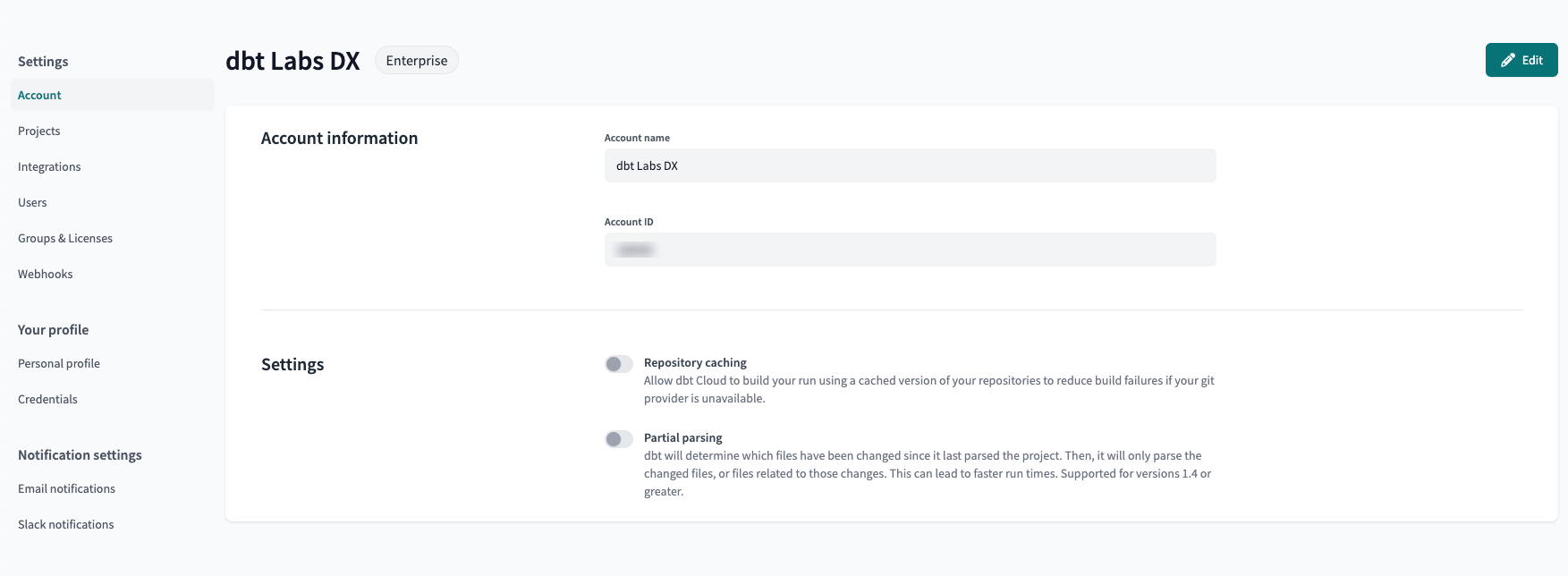2024 dbt Cloud release notes
dbt Cloud release notes for 2024.
April 2024
March 2024
- New: The Semantic Layer services now support using Privatelink for customers who have it enabled.
- New: You can now develop against and test your Semantic Layer in the Cloud CLI if your developer credential uses SSO.
- Enhancement: You can select entities to Group By, Filter By, and Order By.
- Fix:
dbt parseno longer shows an error when you use a list of filters (instead of just a string filter) on a metric. - Fix:
join_to_timespinenow properly gets applied to conversion metric input measures. - Fix: Fixed an issue where exports in Redshift were not always committing to the DWH, which also had the side-effect of leaving table locks open.
February 2024
New: Exports allow you to materialize a saved query as a table or view in your data platform. By using exports, you can unify metric definitions in your data platform and query them as you would any other table or view.
New: You can access a list of your exports with the new list saved-queries command by adding
--show-exportsNew: The dbt Semantic Layer and Tableau Connector now supports relative date filters in Tableau.
Enhancement: The dbt Semantic Layer Google Sheets integration now exposes a note on the cell where the data was requested, indicating clearer data requests. The integration also now exposes a new Time Range option, which allows you to quickly select date ranges.
Enhancement: The GraphQL API includes a
requiresMetricTimeparameter to better handle metrics that must be grouped by time. (Certain metrics defined in MetricFlow can't be looked at without a time dimension).Enhancement: Enable querying metrics with offset and cumulative metrics with the time dimension name, instead of
metric_time. Issue #1000- Enable querying
metric_timewithout metrics. Issue #928
- Enable querying
Enhancement: Added support for consistent SQL query generation, which enables ID generation consistency between otherwise identical MF queries. Previously, the SQL generated by
MetricFlowEnginewas not completely consistent between identical queries. Issue 1020Fix: The Tableau Connector returns a date filter when filtering by dates. Previously it was erroneously returning a timestamp filter.
Fix: MetricFlow now validates if there are
metrics,group by, orsaved_queryitems in each query. Previously, there was no validation. Issue 1002Fix: Measures using
join_to_timespinein MetricFlow now have filters applied correctly after time spine join.Fix: Querying multiple granularities with offset metrics:
- If you query a time offset metric with multiple instances of
metric_time/agg_time_dimension, only one of the instances will be offset. All of them should be. - If you query a time offset metric with one instance of
metric_time/agg_time_dimensionbut filter by a different one, the query will fail.
- If you query a time offset metric with multiple instances of
Fix: MetricFlow prioritizes a candidate join type over the default type when evaluating nodes to join. For example, the default join type for distinct values queries is
FULL OUTER JOIN, however, time spine joins requireCROSS JOIN, which is more appropriate.Fix: Fixed a bug that previously caused errors when entities were referenced in
wherefilters.
January 2024
New: New metric type that allows you to measure conversion events. For example, users who viewed a web page and then filled out a form. For more details, refer to Conversion metrics.
New: Instead of specifying the fully qualified dimension name (for example,
order__user__country) in the group by or filter expression, you now only need to provide the primary entity and dimensions name, likeuser__county.New: You can now query the saved queries you've defined in the dbt Semantic Layer using Tableau, GraphQL API, JDBC API, and the dbt Cloud CLI.
Enhancement: The YAML spec parameter
labelis now available for Semantic Layer metrics in JDBC and GraphQL APIs. This means you can conveniently uselabelas a display name for your metrics when exposing them.Enhancement: Added support for
create_metric: truefor a measure, which is a shorthand to quickly create metrics. This is useful in cases when metrics are only used to build other metrics.Enhancement: Added support for Tableau parameter filters. You can use the Tableau connector to create and use parameters with your dbt Semantic Layer data.
Enhancement: Added support to expose
exprandaggfor Measures in the GraphQL API.Enhancement: You have improved error messages in the command line interface when querying a dimension that is not reachable for a given metric.
Enhancement: You can now query entities using our Tableau integration (similar to querying dimensions).
Enhancement: A new data source is available in our Tableau integration called "ALL", which contains all semantic objects defined. This has the same information as "METRICS_AND_DIMENSIONS". In the future, we will deprecate "METRICS_AND_DIMENSIONS" in favor of "ALL" for clarity.
Fix: Support for numeric types with precision greater than 38 (like
BIGDECIMAL) in BigQuery is now available. Previously, it was unsupported so would return an error.Fix: In some instances, large numeric dimensions were being interpreted by Tableau in scientific notation, making them hard to use. These should now be displayed as numbers as expected.
Fix: We now preserve dimension values accurately instead of being inadvertently converted into strings.
Fix: Resolved issues with naming collisions in queries involving multiple derived metrics using the same metric input. Previously, this could cause a naming collision. Input metrics are now deduplicated, ensuring each is referenced only once.
Fix: Resolved warnings related to using two duplicate input measures in a derived metric. Previously, this would trigger a warning. Input measures are now deduplicated, enhancing query processing and clarity.
Fix: Resolved an error where referencing an entity in a filter using the object syntax would fail. For example,
{{Entity('entity_name')}}would fail to resolve.
